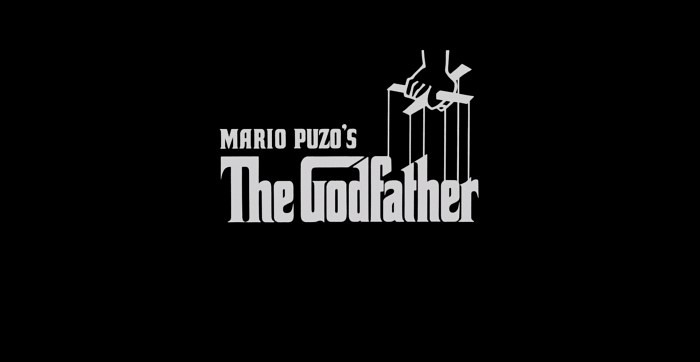
Now here's a nice continuation of tonight's theme of crime melodramas. Shockproof was (ostensibly) about a morally upright man driven to the dark side by love of a woman; As Tears Go By was about an amoral man tempted toward the light side by love of a woman, but ultimately brought down by brotherly love for a fellow gangster; and here, The Godfather is about a shrewd, smart man born into amorality who tries (twice) to let the love of a woman keep him from slipping, but ultimately his responsibility to and love of his family draws him back down.
In a way it's always been odd to me that Brando is all over the posters and movie boxes for this. I mean, literally speaking he's the title character, but the story is really about Michael Corleone's transition from golden boy/war hero into the next Don/Godfather. It's the story about the position or role of "Godfather" and its power, and the gradual but inevitable transition from too-smart-to-get-involved Michael into cold, shrewd, too-smart-to-do-anything-else Michael. Of course, it's also about the family and the role of family and about the transition from one generation's way of thinking into the next and how the departing seat's values ought to be respected but considered skeptically by those coming into power, and about the nature of (and right time and place for, and right time and place to avoid) violence, and the value of firm action over mere words (this at least is something I could easily argue is echoed throughout As Tears Go By and is perversely, poignantly missing from Shockproof). But I always look to drama and character first, and the story isn't Vito's, it's Michael's. Part II splits its focus between the two, to both the benefit and detriment of the film if you ask me, but Part I here is strictly Michael's story.
I'm not actually making a case against Brando being on the posters, of course. Brando is the big-deal actor, and the iconic figure of the story. It's Michael who's the classic hero here, who resists and then answers the call to action, who faces demons in a cave, sets sail for distant lands, usurps his father's throne and returns home a changed man, but it's Vito Corleone casting the looming shadow over everything: Vito is at various points nemesis, trickster, attractor and mentor. He's the key to everything. Of course he's on the poster.
But the story belongs solely to Michael Corleone, is all I'm saying.

No comments:
Post a Comment